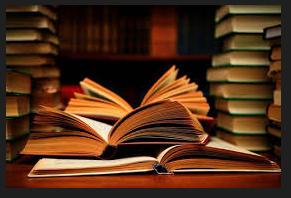When I was a child, my teachers taught us that we should read books to the end. Now that I'm almost stepping into old age, I've come to realize that such rules are no longer relevant to me.
I don't know if I've matured enough to realize that what I was taught in school no longer applies to my life, or if I simply prefer to acquire only the knowledge I truly need. This means that if I only like a part of a book, I only read what interests me, leaving the rest behind. This may not apply to every book but it could be an option depending on the reading.
After talking to some people about this, I've realized that we often experience a strong sense of guilt if we don't read a book in its entirety. Sometimes, the book sits on a shelf untouched for a long time, and that feeling of not having finished it becomes a constant reminder which brings shame to our energy.
It seems that the book becomes a symbol of the guilt that was instilled in us in school when we were children. This guilt is not only reflected in the bookshelf but also in our minds.
I never learned how to free myself from that guilt, as soon as I started working on my shadows I saw that was a problem for me but it seems that we cannot move forward if we don't confront it.
What I did to rid myself of that guilt is to realize two important things that can be difficult to let go of.
The first thing that I had to realize was that I am no longer in school, and I had to reconnect with what people call my inner child. In some of the meditations I found that help you get in touch with your younger self, I found her sitting with an unfinished book, crying because she didn't want to memorize something she didn't like. I sympathized with her and gave her a book that I knew she would enjoy. She took the book and started reading without hesitation. I left her with the book, and when I returned a couple of days later, she was eager for more knowledge. I told her that she didn't have to read the rest of the book she didn't like and that from that day forward, she would decide what she wanted to know, and I would bring her the books she needed. If she found something in a book that she didn't like, that wouldn't be an impediment to blocking out what she wanted to read.
The second important thing is to apply compassion to this issue, compassion make things softer for us to start seeing things under a different light and easier to confront. The only reason my emotional growth was stagnant was because I didn't know that compassion existed. In order to understand compassion I had to learn a lot of things first. It seems to me like my life has been so hard that I didn't have a perception of what soft and caring was. It has been the hardest thing I had to do so far, which is learn to slow down my mind enough to be able to feel very subtle things.

